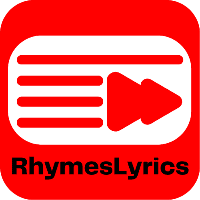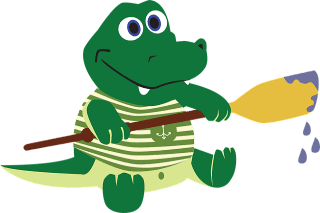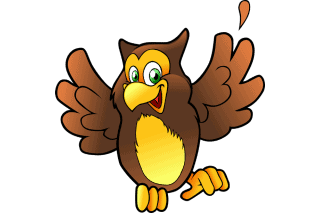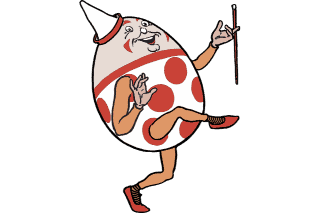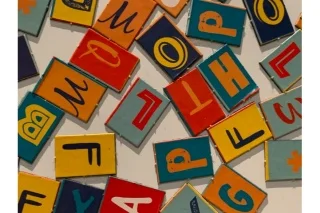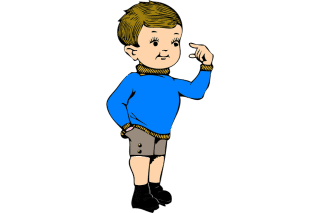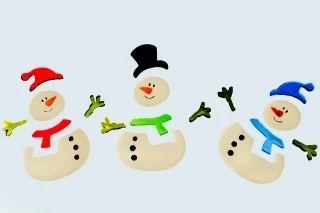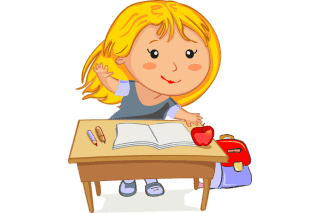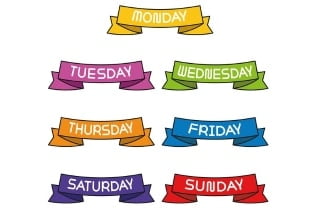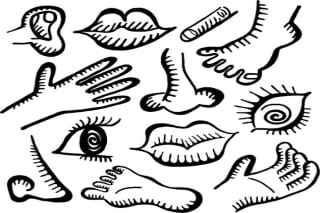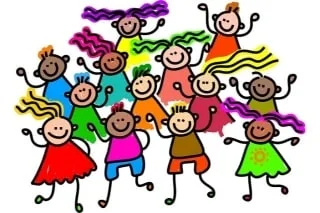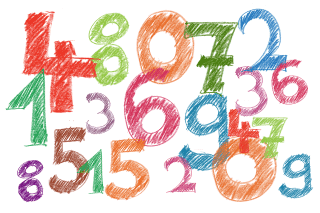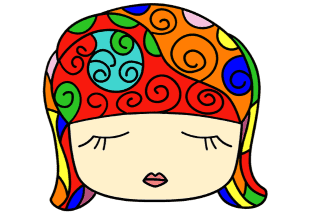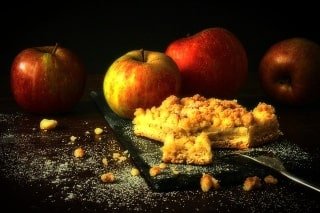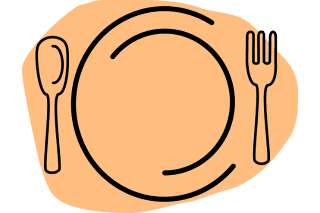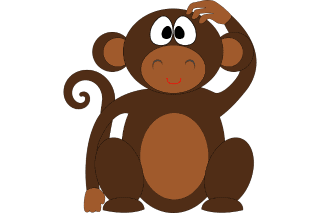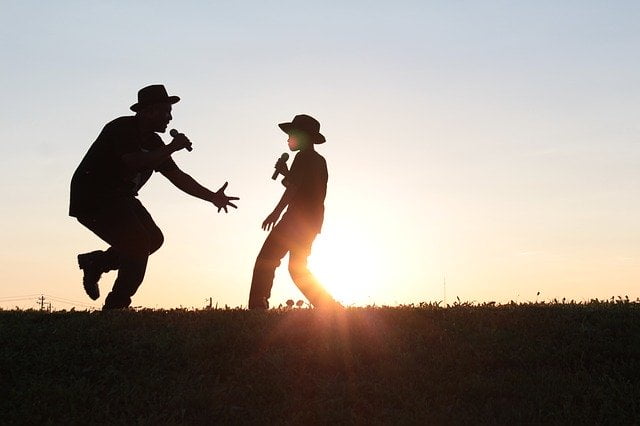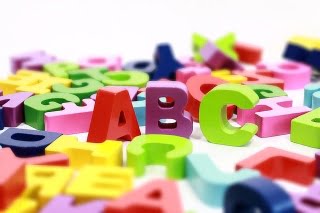
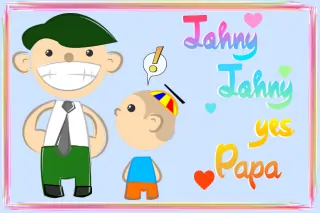
Johny Johny Yes Papa Lyrics
The nursery rhyme “Johny Johny Yes Papa” is a beloved and widely recognized song that has enchanted children around the globe. The publisher and specific historical background are not widely documented. The origins of the rhyme have roots in diverse cultures and regions, making it challenging to attribute it to a particular country or year. Nevertheless, it has gained significant popularity in English-speaking communities and has become an essential part of children’s literature and music.
The rhyme revolves around a simple conversation between a child named Johny and his Papa. It follows a call-and-response pattern in which Papa inquires if Johny is consuming sugar, to which Johny playfully responds, “Yes, Papa.” The rhyme further progresses with additional verses illustrating various activities and interactions between the two characters.
“Johny Johny Yes Papa” carries importance as a light-hearted and engaging rhyme that aids in the development of early language skills, rhythm comprehension, and memory retention in children. It fosters parent-child interaction and serves as a delightful source of entertainment for young learners.
While detailed information about the specific historical background, author, and publisher of “Johny Johny Yes Papa” may not be readily available, its enduring popularity and widespread recognition are testament to its lasting appeal and cultural significance within the realm of children’s rhymes
“Johny Johny Yes Papa” Lyrics
Johny, Johny,
Yes papa?
Eating sugar?
No papa.
Telling lies?
No papa.
Open your mouth
Ha ha ha!
- eating sugar no papa song lyrics
- jane jane yes papa poem lyrics
- jani jani yes papa poem lyrics
- jany jany song lyrics
- jhony johny yes papa nursery rhyme lyrics
- song johnny johnny lyrics
- johnny johnny no papa song lyrics
- johnny johnny song in english
- poem johnny johnny videos
- johnny johnny yes papa poem lyrics
- johnny rhymes lyrics in english
- johny johny yes papa nursery rhyme lyrics
In the first line, Papa addresses Johny by repeating his name twice, creating a playful tone. The second line sees Papa asking if Johny is eating sugar, to which Johny responds with a denial. This highlights the significance of honesty and truthfulness. Papa proceeds to inquire if Johny is telling lies, and Johny once again denies it, promoting the values of integrity and sincerity. The verse concludes with Papa amusingly requesting Johny to open his mouth and sharing a laugh, infusing a lighthearted element into the interaction.
Each line in the verses of “Johny Johny Yes Papa” contributes to the playful and educational nature of the rhyme. It teaches children about honesty, encourages open communication, and establishes a positive relationship between a child and a parent figure. The repetition of questions and responses helps children develop language skills, memory retention, and rhythmic awareness.
These simple and easy-to-understand lines engage young learners, allowing them to actively participate in the rhyme and develop their communication and listening skills. The lighthearted and repetitive structure makes “Johny Johny Yes Papa” an enjoyable and memorable experience for children.
- full johnny song lyrics
- johny johny johny johny yes papa full poem
- johny johny no papa poem lyrics
- johny johny nursery rhyme
- johny johny papa nursery rhyme
- johny johny poem for kids
- johny johny rhymes for kids
- johny johny si papa poem
- johny johny song lyrics
- johny johny yes mama song
- johny johny yes papa eating sugar no papa song
Another version of “Johny Johny Yes Papa”
Jane, Jane, yes, Papa
Eating sugar? No, Papa
Telling lies? No, Papa
Open your mouth, ha-ha-ha!
Please note that the rhyme is often accompanied by hand gestures, with children mimicking the actions of eating sugar, telling lies, and then opening their mouths wide while laughing.
“Johny Johny Yes Papa” is a widely recognized nursery rhyme that has been adapted and modified in various versions. While the main lyrics remain consistent, there are minor variations across different renditions. Here are a few examples:
Example 1:
Johny, Johny Yes, Papa
Eating sugar? No, Papa
Telling lies? No, Papa
Show me a smile! Ha-ha-ha!
Example 2:
Johny, Johny Yes, Papa
Eating sugar? No, Papa
Telling lies? No, Papa
That’s a good boy! Ha-ha-ha!
- johny johny yes papa eating sugar no papa open
- johny johny yes papa eating sugar no papa telling lies no papa
- poem johny johny yes papa hindi mein
- johny johny yes papa johny johny yes papa
- nursery poem johny johny yes papa lyrics
- johny johny yes papa lyrics in hindi
- poem johny johny yes papa origin
- johny johny yes papa poem image
- full johny johny yes papa song lyrics
- johny johny yes papa telugulo
- johny johny yes papa video mein
Educational values and other benefits of "London Bridge Is Falling Down"
These examples demonstrate the range of variations you may encounter when it comes to the “Johny Johny Yes Papa” rhyme. Despite these differences, the core theme of a dialogue between Johny and Papa about eating sugar and telling lies, along with a playful response, remains consistent. It is common for this rhyme to be accompanied by finger actions or hand gestures, enhancing children’s engagement in the storytelling experience.
While the rhyme “Johny Johny Yes Papa” does not have a prescribed set of gestures, children often incorporate hand movements to enhance the storytelling experience. During recitations or performances, they may use their index finger to point to themselves when saying “Johny” and then extend their finger towards an imaginary Papa figure when saying “Yes Papa.” Furthermore, they might bring their hand close to their mouth when mentioning eating sugar or telling lies. These simple gestures visually represent the dialogue and actions described in the rhyme, adding an element of engagement and interactivity for young children.
The rhyme “Johny Johny Yes Papa” offers numerous educational benefits for children. Firstly, it aids in the development of language and communication skills as children encounter new words and engage in the call-and-response format. Additionally, it supports memory retention as they repeat the rhyme and internalize its patterns. Secondly, the rhyme promotes the values of honesty and integrity through the dialogue between Johny and Papa, instilling in children the importance of telling the truth. It also fosters a strong parent-child relationship and encourages open communication.
Moreover, the repetitive structure and rhythmic nature of the rhyme contribute to the development of phonological awareness and early literacy skills. Overall, “Johny Johny Yes Papa” blends educational elements with playful interactions, effectively engaging children and supporting their learning and overall development.
The rhyme “Johny Johny Yes Papa” offers numerous educational benefits for children. Firstly, it aids in the development of language and communication skills as children encounter new words and engage in the call-and-response format. Additionally, it supports memory retention as they repeat the rhyme and internalize its patterns. Secondly, the rhyme promotes the values of honesty and integrity through the dialogue between Johny and Papa, instilling in children the importance of telling the truth. It also fosters a strong parent-child relationship and encourages open communication.
Moreover, the repetitive structure and rhythmic nature of the rhyme contribute to the development of phonological awareness and early literacy skills. Overall, “Johny Johny Yes Papa” blends educational elements with playful interactions, effectively engaging children and supporting their learning and overall development.
- nursery rhyme johny johny yes papa videos
- johny johny yes papa youtube
- johny yes papa song for kids
- jonny jonny jonny yes papa
- jony johny yes papa nursery rhyme lyrics
- juni juni yes papa complete song
- open your mouth hahaha
- pa pa pa pa song lyrics
- papa poem with lyrics
- papa rhymes lyrics
- song johnny johnny yes papa lyrics
- super jojo johny johny yes papa poem
- telling lies no papa poem
Frequently asked questions (FAQ's) based on “Johny Johny Yes Papa”
Answer: The main character in the rhyme is Johny.
Answer: Papa asks Johny if he is eating sugar.
Answer: Johny responds by saying, “No, Papa.”
Answer: Yes, Papa asks Johny if he is telling lies.
Answer: Johny replies by saying, “No, Papa.”
Answer: Papa asks Johny to open his mouth.
Answer: Papa makes the sound “Ha! Ha! Ha!” in response.
Answer: The rhyme emphasizes the importance of telling the truth and not telling lies.
Answer: Papa is likely concerned about Johny’s sugar consumption and wants to make sure he is being honest about it
Answer: Johny may feel a little apprehensive or guilty if he has been eating sugar and is afraid of being scolded.
- you tube johny johny yes papa lyrics
- youtube johnny johnny
- johny johny yes papa full poem
- johny johny yes papa lyrics download
- johny johny yes papa lyrics english
- johny johny yes papa lyrics pdf
- johny johny yes papa lyrics remix
- johny johny yes papa lyrics spanish
- johny johny yes papa no papa
- johny johny yes papa original
- johny johny yes papa song
- poem johny johny yes papa lyrics
Some more details with other related facts based on "Johny Johny Yes Papa"
The rhyme “Johny Johny Yes Papa” follows a simple and repetitive structure, featuring a conversation between Johny and his Papa. Papa asks Johny if he is eating sugar and telling lies, and Johny responds with denials. The interaction concludes with a playful request from Papa for Johny to open his mouth, followed by laughter.
An intriguing aspect of this rhyme is its ability to engage young children through its rhythmic and melodic nature. The repetitive lines and catchy rhythm make it easy for children to join in and actively participate. It also offers valuable opportunities for parents and caregivers to bond with their children through interactive recitations.
While the primary purpose of “Johny Johny Yes Papa” is to entertain, it also holds educational value for children. The rhyme helps develop their language skills as they learn new words, practice pronunciation, and engage in a call-and-response format. Furthermore, it promotes memory retention as children repeat the rhyme, reinforcing their learning.
Interestingly, “Johny Johny Yes Papa” has gained immense popularity on the internet, especially through animated videos and remixes. These adaptations often feature vibrant visuals and catchy tunes, attracting millions of views and transforming the rhyme into an internet sensation. This digital adaptation has breathed new life into the traditional rhyme, making it even more accessible and enjoyable for children in today’s digital age.
It is worth noting that the simplicity and repetitive nature of “Johny Johny Yes Papa” have also sparked creativity and variations across different cultures and languages. These adaptations often reflect local traditions, adding cultural diversity to the rhyme’s legacy.
In recent years, the rhyme has sparked discussions about parenting, honesty, and the dynamics between parents and children. It encourages children to understand the importance of honesty while maintaining a lighthearted tone that appeals to their sense of humor.
Overall, “Johny Johny Yes Papa” remains a beloved nursery rhyme that has stood the test of time. Its catchy melody, interactive format, and educational value continue to entertain and engage young children, making it a cherished part of their early learning experiences.
- eating sugar no papa song lyrics
- jane jane yes papa poem lyrics
- jani jani yes papa poem lyrics
- jany jany song lyrics
- jhony johny yes papa nursery rhyme lyrics
- song johnny johnny lyrics
- johnny johnny no papa song lyrics
- johnny johnny song in english
- poem johnny johnny videos
- johnny johnny yes papa poem lyrics
- johnny rhymes lyrics in english
- johny johny yes papa nursery rhyme lyrics
- full johnny song lyrics
- johny johny johny johny yes papa full poem
- johny johny no papa poem lyrics
- johny johny nursery rhyme
Some activities for children's based on "Johny Johny Yes Papa"
Welcome, young learners! Here, we have exciting activities inspired by the beloved rhyme, “Johny Johny Yes Papa.” Get ready to dive into a world of creativity, exploration, and historical discovery. Each activity has been carefully designed to engage your senses, stimulate your imagination, and provide opportunities for learning and fun!
- Role Play: Role play provides children with the opportunity to step into different characters’ shoes and bring the rhyme “Johny Johny Yes Papa” to life. They can pretend to be Johny, Papa, or even other family members. They can use their imagination to create their own scenarios and dialogue, allowing for endless possibilities of storytelling and creative expression. Through role play, children can develop their social skills, emotional intelligence, and cognitive abilities as they engage in pretend play and interact with others.
- Puppet Craft: Puppet craft allows children to unleash their creativity by designing and crafting their own puppets representing Johny and Papa. Children can use materials like paper bags, socks, or craft sticks to make the puppets. They can decorate them with markers, yarn, or fabric scraps to add personality. They can personalize the puppets with different facial expressions, clothing, and accessories, giving them a unique touch. This activity not only enhances their fine motor skills and hand-eye coordination but also encourages storytelling and imaginative play. Children can use the puppets to retell the rhyme or even create their own puppet shows, fostering self-confidence and communication skills.
- Finger Painting: Finger painting is a hands-on activity that lets children explore their artistic side while connecting with the rhyme. By using their fingers as paintbrushes, children can experiment with colors, textures, and patterns, fostering their sensory development. Children can use washable paints and paper to make colorful images of Johny, Papa, or other elements from the rhyme. Finger painting also promotes self-expression and boosts creativity as children freely create their own interpretations of the characters and scenes from the rhyme. It is a joyful and messy activity that allows children to engage their senses and discover the joy of making art.
- Kitchen Pretend Play: Kitchen pretend play invites children to immerse themselves in a world of imagination as they take on the roles of Johny and Papa in their own play kitchen. They can use play utensils, bowls, and play food items to engage in imaginative cooking and storytelling. Through this activity, children can learn about food, nutrition, and the importance of healthy eating habits. They can practice their fine motor skills by handling play utensils and engaging in pretend cooking. Kitchen pretend play also provides an opportunity for children to practice sharing, turn-taking, and cooperation as they play together and serve their imaginary meals.
Note: These activities are designed to be engaging, educational, and enjoyable for children while incorporating the theme of the rhyme “Johny Johny Yes Papa.” They encourage creativity, social interaction, and skill development in a fun and interactive manner.
- johny johny papa nursery rhyme
- johny johny poem for kids
- johny johny rhymes for kids
- johny johny si papa poem
- johny johny song lyrics
- johny johny yes mama song
- johny johny yes papa eating sugar no papa song
- johny johny yes papa eating sugar no papa open
- johny johny yes papa eating sugar no papa telling lies no papa
- poem johny johny yes papa hindi mein
- johny johny yes papa johny johny yes papa
- nursery poem johny johny yes papa lyrics
Related links
Categories
Other popular rhymes
Other related keywords and search's
- johny johny yes papa lyrics in hindi
- poem johny johny yes papa origin
- johny johny yes papa poem image
- full johny johny yes papa song lyrics
- johny johny yes papa telugulo
- johny johny yes papa video mein
- nursery rhyme johny johny yes papa videos
- johny johny yes papa youtube
- johny yes papa song for kids
- jonny jonny jonny yes papa
- jony johny yes papa nursery rhyme lyrics
- juni juni yes papa complete song
- open your mouth hahaha
- pa pa pa pa song lyrics
- papa poem with lyrics
- papa rhymes lyrics
- song johnny johnny yes papa lyrics
- super jojo johny johny yes papa poem
- telling lies no papa poem
- you tube johny johny yes papa lyrics
- youtube johnny johnny
- johny johny yes papa full poem
- johny johny yes papa lyrics download
- johny johny yes papa lyrics english
- johny johny yes papa lyrics pdf
- johny johny yes papa lyrics remix
- johny johny yes papa lyrics spanish
- johny johny yes papa no papa
- johny johny yes papa original
- johny johny yes papa song
- poem johny johny yes papa lyrics
